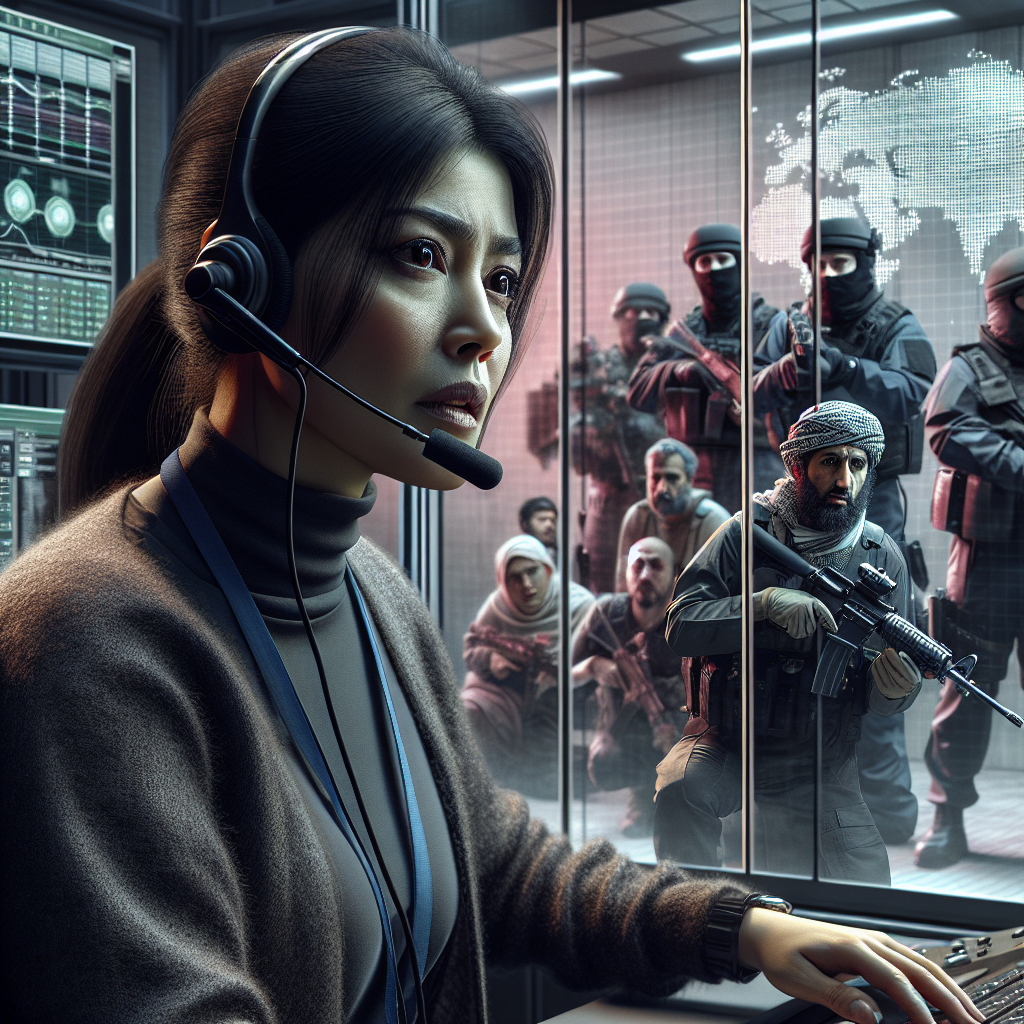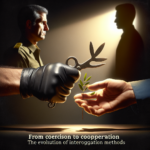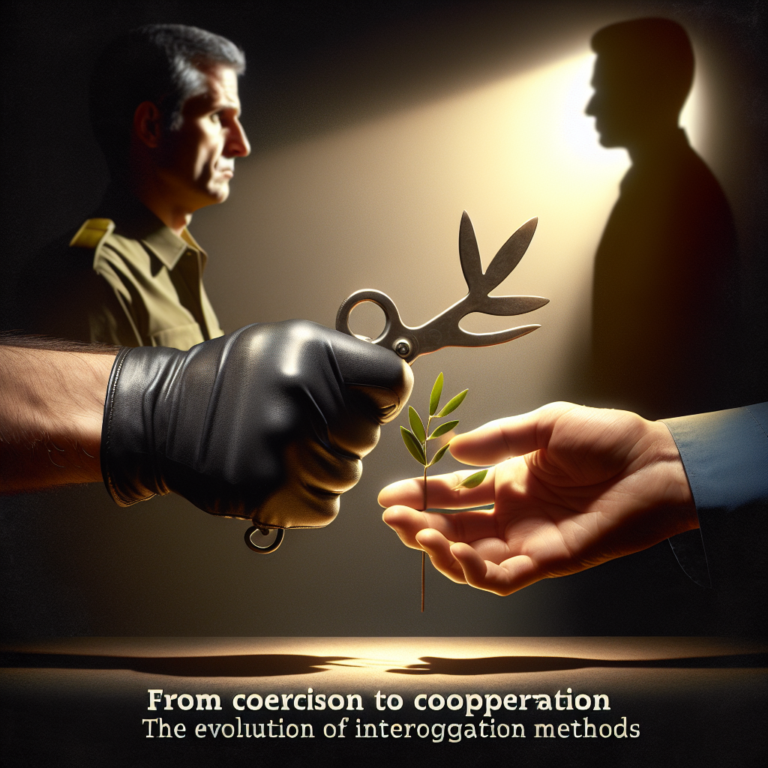
Introduction
In a world fraught with unpredictability, hostage situations remain one of the most harrowing crises law enforcement and special operations teams face. The stakes are undeniably high—lives hang in the balance, tensions run intense, and decisions must be made quickly. At the core of these high-pressure scenarios lies a crucial element: effective communication. Holding the Line: How Effective Communication Saves Lives in Hostage Situations captures the essence of what it means to communicate effectively in life-or-death situations. This article delves deep into the strategies, real-world applications, and the undeniable impact of communication in hostage scenarios.
The Importance of Effective Communication in Crisis Situations
When communication falters, chaos reigns. In hostage situations, the failure to relay critical information can lead to catastrophic outcomes. Studies show that effective communication not only helps de-escalate tension but also builds rapport and trust between negotiators and suspects.
The Role of Communication in Hostage Negotiations
Effective communication serves multiple purposes in hostage negotiations:
Establishing Connection: Creating rapport with the hostage-taker is essential. Understanding their motivations can provide crucial insights into the negotiation process.
Gathering Intelligence: Collecting information about the hostage situation, including the state of the hostages, the environment, and the emotional state of the captor, is vital.
- Offering Choices: Presenting options to the hostage-taker can create a sense of control, making them less likely to resort to violence.
Case Study: The 1972 Munich Olympics
The tragic events of the 1972 Munich Olympics showcased both the perils and complexities of hostage situations. Palestinian militants took members of the Israeli Olympic team hostage, leading to a standoff that ended in disaster. A significant takeaway from this incident was the lack of effective communication and coordination among various agencies, resulting in missed opportunities for resolution.
Analysis: This case underscores the necessity of having a clear communication strategy, which could have fostered a more proactive approach to negotiation and resolution.
Techniques for Effective Communication
Active Listening
Active listening is an essential skill in hostage negotiations. It involves fully concentrating, understanding, responding, and remembering what the other party says.
- Techniques:
- Paraphrasing: Repeat back what the hostage-taker has said, demonstrating understanding.
- Empathy Statements: Use phrases like “I understand that you are feeling…” to validate their emotions.
Open-Ended Questions
Asking open-ended questions encourages dialogue and allows for the discovery of valuable insights.
- Examples:
- “What would you like to see happen?”
- “Can you tell me more about your situation?”
Non-Verbal Communication
Non-verbal cues such as tone, body language, and facial expressions play a vital role in negotiations.
- Key Aspects:
- Maintain a calm and steady tone.
- Use body language that conveys openness and approachability.
Case Study: The 1993 Waco Siege
In the 1993 Waco siege, FBI negotiators utilized effective communication strategies, emphasizing active listening and building rapport with David Koresh. The prolonged negotiations led to the eventual surrender of some followers, demonstrating how effective communication can yield positive outcomes even in dire circumstances.
Analysis: This case illustrates the power of patience and understanding in negotiation processes, reinforcing the principle that communication can create openings for resolution.
The Psychological Aspects of Hostage Situations
Understanding the psychological dynamics at play can enhance communication efforts significantly.
Emotional Intelligence
Negotiators with high emotional intelligence can better navigate the complexities of human emotions, allowing them to respond empathetically.
- Key Elements:
- Self-awareness: Recognizing one’s own emotional state.
- Social Skills: Engaging effectively with others to foster positive interactions.
Building Trust
Trust is a crucial factor in negotiations. Strategies to build trust include consistent communication and demonstrating a willingness to understand the hostage-taker’s needs.
Table: Communication Strategies and Psychological Impact
| Strategy | Psychological Impact |
|---|---|
| Active Listening | Increases feeling of being heard and validates emotions |
| Open-Ended Questions | Encourages self-reflection and deeper dialogue |
| Empathy Statements | Builds rapport and trust, reducing hostility |
The Impact of Technology on Communication
Advancements in technology have transformed how communication flows in hostage situations.
Real-Time Communication Tools
Utilizing secure communication technologies allows negotiators to share information quickly and securely, ensuring faster decision-making.
Intelligence Gathering
Drones, surveillance systems, and other intelligence-gathering technologies can provide negotiators with real-time information about the hostage location and captors.
Case Study: The 2016 Orlando Nightclub Shooting
During the tragic Orlando nightclub shooting, law enforcement utilized cutting-edge communication technologies to relay information among teams and negotiate with the shooter. Despite the chaotic nature of the incident, technology facilitated better communication, which played a pivotal role in managing the situation.
Analysis: This incident demonstrates how rapid information exchange can enhance situational awareness, leading to better outcomes in hostage situations.
Training for Effective Communication
Role-Playing and Simulation
Training programs that incorporate role-playing and simulations of hostage scenarios help negotiators practice effective communication strategies in a controlled environment.
Continuous Education
Regular refresher courses on negotiation tactics and psychological principles are essential to keep skills sharp and up to date.
The Power of Debriefing
Post-incident debriefings provide critical learning opportunities. Sharing experiences and analyzing what communication strategies worked or failed can enhance future negotiations.
Conclusion
Holding the Line: How Effective Communication Saves Lives in Hostage Situations serves as a poignant reminder of the power of words in life-and-death scenarios. Effective communication is not merely about talking—it’s about listening, understanding, and building trust. In the face of adversity, adopting robust communication strategies can make all the difference, potentially saving lives and leading to peaceful resolutions. The lessons drawn from historical cases, current technologies, and training methodologies echo the reality that, when it comes to communication, every word counts.
FAQs
1. What are the key factors in effective hostage negotiation?
Effective hostage negotiation involves empathy, active listening, understanding the psychological dynamics, and maintaining clear communication.
2. How important is establishing rapport with the hostage-taker?
Establishing rapport is crucial as it fosters trust and creates an environment conducive to negotiation.
3. Can technology replace human communication in hostage situations?
While technology can enhance communication and provide real-time data, it cannot fully replace the nuances of human interaction and understanding.
4. What role does emotional intelligence play in negotiations?
Emotional intelligence helps negotiators navigate complex emotional landscapes, allowing them to respond appropriately to the hostage-taker’s feelings and needs.
5. How can training improve negotiation skills?
Regular training, including simulations and role-playing, helps negotiators refine their skills, learn from past experiences, and stay prepared for high-pressure situations.
By understanding and implementing the principles of effective communication, we can enhance the potential for positive outcomes in hostage situations, forever holding the line between chaos and resolution.

















